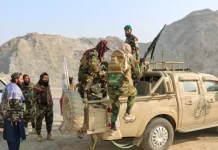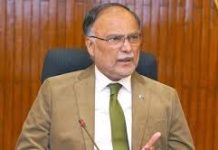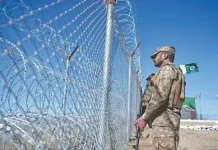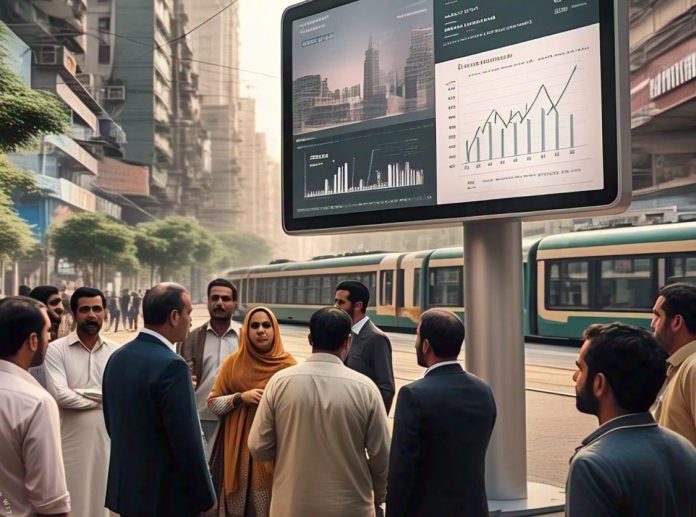
By Barrister Ghaffar Khan
At the sunset of the year 2024 and with the dawn of 2025, the country of Pakistan is standing in the state of deep reflection, wounded internally due to political fractions but with high spirits to fight back as a responsible state. This seems to be the only way this country can do better. The international stage is changing with the furious backlash from political actors at home. The year 2025 is poised to throw daunting challenges to the nation to brace against whereas there’s ample of opportunities to realign priorities and hit back in the face of challenges with national resolve, effective diplomacy and economic recovery.
Pakistan has undergone many tumultuous events in its chequered history mainly due to country’s ethnic fault lines and the ensuing political fractions ensuing therefrom. Each time it has struggled to keep the federation intact and it has so far been successful. However, the base issues still persist and sometimes pop up more aggressively wanting state’s attention on urgent basis. This is because of government’s short cited approach to the country’s pernicious problems that have surfaced through ages. Each incoming government is bent on securing more time in occupying the realm of power than actually sitting to address gross issues through strategic planning on long term basis. But no opportunity has prospered so far.
At the outset of 2025, the geo-politics is changing rapidly. The middle-eastern war is increasingly touchingshores of Pakistan that happens to be caught inthe tug of war between the United States and the China. Pakistan, despite being at the key strategic location, promising advancement in military technology and with an emerging business market in South Asia is still lacking behind in projecting itself as a regional power because of the array of issues relating to debt-management, political disruptions, hostile neighbors, cross-border terrorism and insurgency in the country’s north west and north east that continue to trap its growth on the regional arena.
Academics associated with studying global spheres of influence and international relations believe that Pakistan’s advancement in the military hardware, particularly in long range nuclear missile program may invite unwanted challenges from west especially from United States on the motivations of Israel that feels threated by any such technology that may potentially be used against it. To counter such active and non-active threats it has used is powerful network of spies and sophisticated western hardware against Palestine freedom fighters, Hezbollah, Syria, Yemen Houthis and lately Iran wherein dismantling the central leadership of belligerent organizations and keeping a strong check on the movement of their opponents.
Pakistan however, has tried to keep distance from the war but ideologically and historically it stands in solidarity with Palestine while having no diplomatic relations with the state of Israel. With a strong anti-Israel rhetoric at home, Pakistan cannot remain non-partisan to the conflict that is the central issue facing Muslim Ummah. And in such circumstances, Pakistan’s advancement in surface to surface nuclear missile technology has sent alarming signals to the west about country’s plans to claim mantle in the nuclear deterrence. To intimidate Pakistan’s plans United States slated sanctions on Pakistan to which the state has come up with a reasonable stance calling American response as biased and reminiscent of its double standards. It is however clear that there is not much on the table between the both countries to engage with as the United States is trying to look for some pressing points to deflect Pakistan’s increasing proximity to China’s orbit of influence. In the age of calculated risks, it is for the country to play best in the long-term interests of the country while realistically appraising its position. In doing so, Kashmir and Palestine shall not be forsaken because of our ideological, ethical and humanitarian commitments as a responsible nation.
As to the opportunities, the development index shows glimmer of hope if the government remains wedded with the idea of facilitating business activities in the country. The regularization of real estate, agriculture and service industry can do wonders in overall tax collection thereby promoting employment, productivity and attracting investments from all across. But these outcomes are incidental to according peace in the country. Currently, Pakistan faces a fresh wave of cross-border terrorism from estranged groups of TTP because of that the tribal belt is once again disturbed. This can be done by encouraging Jirga, as a conventional dispute resolution forum, having tribal confidence and much larger sway. Additionally, the institution of local government shall also be promoted and strengthened as enshrined in the 18th constitutional amendment. Power and finances devolved to provinces have not been further devolved to the local governments impeding progress of rural peripheries provinces. Moreover, to fully reap the fruits of opportunities in the year 2025 it is also direly needed that the reforms in the justice system of the country takes place through parliamentary consensus and confidence as no state can progress on a faulty scale of justice. If this is not done than every effort is doomed to fail.
The writer is a barrister and a columnist, he tweets as Khan_KGK.

























